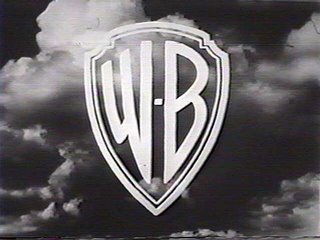
July 2, 2006
Hollywood fighting back
The Associated Press
SHANGHAI, CHINA — In its battle against near-universal Chinese piracy of Hollywood blockbusters, Warner Bros.' weapon of choice is a little white price tag smaller than a postage stamp.
Last year, the home entertainment giant began selling selected movies with price tags of only $2.75 in major Chinese cities, aiming to carve out a market for relatively affordable but high-quality, legitimate versions of movies in a sea of counterfeit products selling for less than a dollar.
"The reason why piracy's come along is that there weren't enough products at the right price soon enough," said Tony Vaughan, managing director of CAV Warner Home Entertainment Co., Warner Bros.' joint venture distribution company in China.
Warner's strategy has been "to build a legitimate, viable offering for the Chinese consumer," he said.
The war against rampant counterfeit movies, drugs and other products is moving from China's back alleys and sidewalks into boardrooms and laboratories. Companies that once relied on lawsuits and police raids are diversifying their strategies, turning to competitive pricing and trying out new technologies to even up seemingly overwhelming odds.
Drug-maker Pfizer Inc. of New London, Conn., is experimenting with attaching small, radio-frequency identification chips to track packages of its erectile disfunction drug Viagra, popular knockoffs of which are widely available. The RFID tags, attached to packaging, can be scanned by a pharmacist to detect product codes showing their authenticity, and presumably weeding out fakes.
Confronted with widespread piracy of computer software, Microsoft Corp. is using new products and advertising to promote the benefits of legitimate software. The new Windows Genuine Advantage program checks the authenticity of a user's software and provides access to Microsoft software and other benefits for Windows XP users. The company is also offering low-cost versions of Windows starter software in some countries.
"Do you really want an 'adventure?'" says a Microsoft banner greeting arriving passengers at Shanghai's Hongqiao Airport.
Lian Hoon Lim, a consultant at AT Kearney in Hong Kong, recommends a "portfolio approach" to clients: A combination of secrecy, careful research of local partners, new technology and business strategies, as well legally enforcing patents and trademark rights.
"It's not a problem for which there is a clear silver bullet," Lian said. "The message is that people who want to do business in China have to expect to spend money to protect themselves."
Worldwide, sales of counterfeit products may run as high as $650 billion a year, the International Chamber of Commerce in Geneva estimates. The global black market for counterfeit pharmaceuticals is worth up to $32 billion.
In many industries, China accounts for the largest share of pirated products. International criminal syndicates are devoting increasing technical prowess to foil anti-counterfeiting packaging and extend their distribution into major Western markets, said Lee Bromberg, head of the patent litigation department at the Boston-based law firm Bromberg & Sunstein.